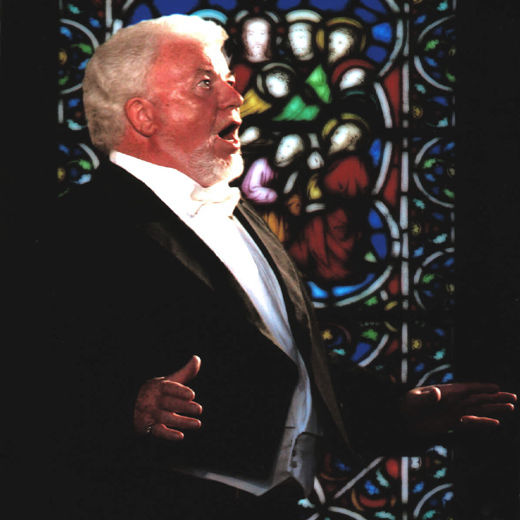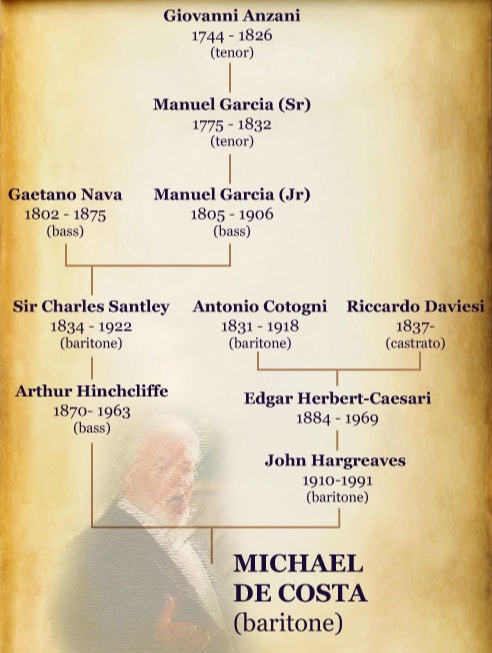
Michael De Costa in concert
Operatic baritone, and founder ofThe De Costa Academy of Singing
Michael De Costa was schooled in the 'bel canto' singing technique by the acclaimed teacher Arthur Hinchcliffe in Halifax, and by John Hargreaves at Sadler’s Wells. He was thus a descendent pupil of two extremely illustrious singing teachers, Manuel Garcia and Edgar Herbert-Caesari.
Since making his professional operatic debut as Amonasro (Aïda), Michael performed in a wide variety of roles, mainly specialising in the Italian Romantic repertoire and the operas of Verdi. His repertoire included the title roles in Macbeth, Nabucco and Rigoletto, Il Conte di Luna (Il trovatore), Giorgio Germont (La traviata), Renato (Un ballo in maschera), Iago (Otello) and Zaccaria (Nabucco). He has also performed the roles of Tonio (Pagliacci), Valentin (Faust) and Escamillo (Carmen) as well as appearing in a variety of Gilbert & Sullivan operettas.
